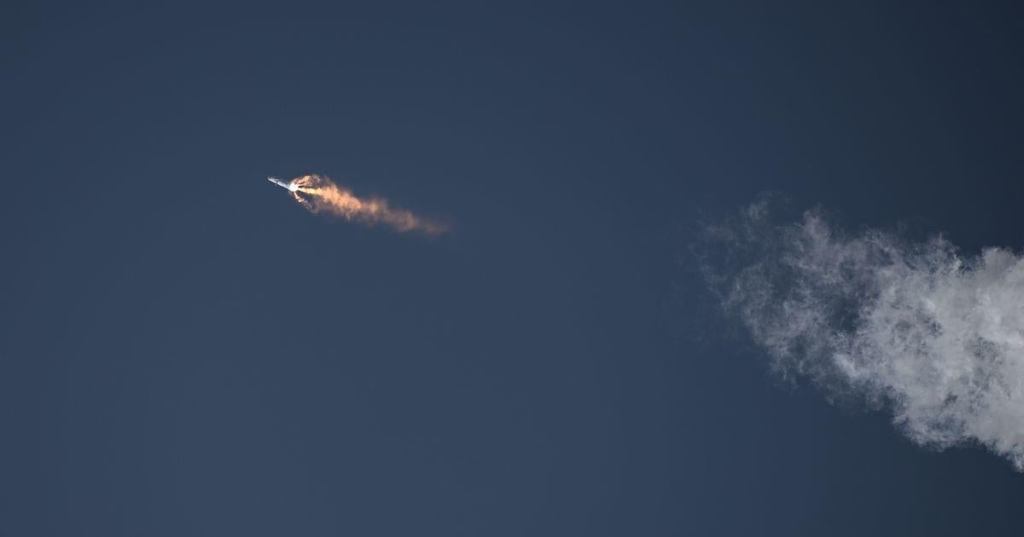The most powerful rocket ever built got off the launchpad but did not last much longer after it exploded above the Gulf of Mexico on Thursday minutes after lifting off in South Texas. Although SpaceX’s Starship unmanned rocket did not achieve its ambitious goal of reaching orbit, the mission was not a total failure.
Before the launch, SpaceX founder Elon Musk tampered down expectations, saying it could take several tries before Starship succeeds at its test flight goal, which was to reach speeds fast enough to enter orbit before landing in the Pacific Ocean near Hawaii. SpaceX employees appeared relieved, even despite the loss of the rocket, and were cheering, “Go Starship!” One even sprayed a bottle of champagne on their colleagues.
Videos by PopCulture.com
The Starship launch avoided a worst-case outcome of exploding on the launchpad, which would have required extensive repairs, reports The New York Times. When engineers determine what went wrong with Thursday’s launch, they can incorporate changes in test flights of other prototype Starships that are almost finished.
SpaceX is known to embrace fiery mishaps during the rocket development process, so it’s likely that the company isn’t viewing the “rapid unscheduled disassembly” too unfavorably. The company maintains that such accidents are the most efficient way of gathering data; the approach sets the company apart from NASA, which prefers slow and methodical testing over dramatic flareups.
For example, when SpaceX tried to start landing Falcon 9 boosters, the first few hit too hard and exploded. With each attempt, engineers tweaked the systems and soon, successful landings started happening. Today, it’s rare if a booster landing fails. SpaceX’s Falcon 9 rockets have already traveled to space 25 times in 2023, with the most recent launch having concluded on Wednesday.
The company first attempted to get this launch off the ground on Monday but a pressure valve in the Super Heavy booster apparently froze. The teams worked to resolve a number of unidentified issues to make Thursday’s attempt possible.
Starship is designed to carry cargo and people beyond Earth and is critical to NASA’s plan to return astronauts to the moon. Two years ago, SpaceX won a nearly $3 billion contract from NASA to use Starship as a crewed lunar lander. The company hoped to conduct the first orbital Starship launch as early as summer 2021 but faced delays in development and in winning FAA approval, which came late Friday.









